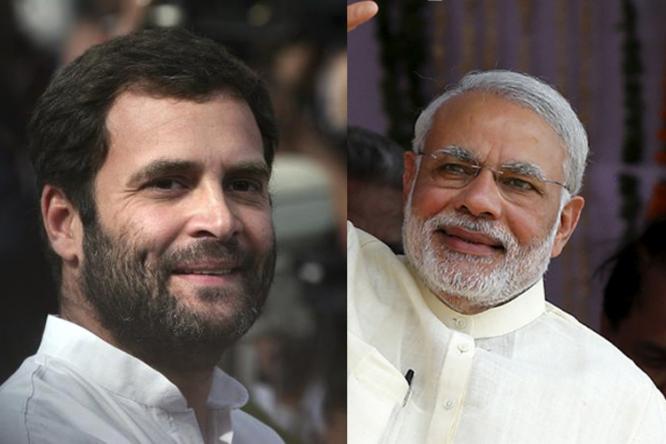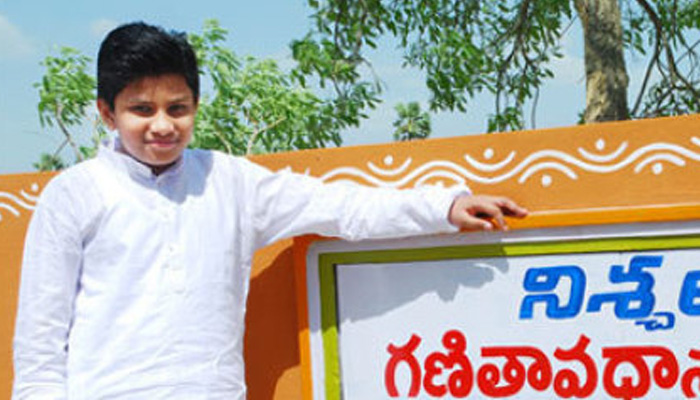Friday, July 24, 2015
मिलिए देश के सबसे युवा चार्ट्ड एकाउंटेंट से, उम्र सिर्फ 19 साल
News and Updates INDIA - GST, TAX, INCOME TAX, CA/ICWA/CS
GST
The government is set to promise compensation to states for five years after the rollout of goods and services tax (GST) in the Constitution Amendment Bill when it comes up in the Rajya Sabha while other recommendations of the select committee will be taken up before the indirect tax reform is implemented. READ MORE
 2. Congress isolated on blocking GST as NCP, others pledge support to government's bill
2. Congress isolated on blocking GST as NCP, others pledge support to government's billWednesday, July 15, 2015
Action against course offered by OPJS university, Rajasthan
Action aginst OPJS UNIVERSITY
It was brought to the notice that OPJS University, Churu (Rajasthan), is offering/conducting certain programmes/courses under the nomenclature “Master in C.A.” and “Bachelor in C.A.” (under the School of Chartered Accountant). Conduct of such courses under the said nomenclature are in contravention of the provisions of the Chartered Accountants Act, 1949 (CA Act) and various other laws.
It is stated that the Institute of Chartered Accountants of India (ICAI) filed a writ petition against OPJS University before the Hon’ble Rajasthan High Court at Jodhpur. The Division Bench of Rajasthan High Court at Jodhpur on 10.07.2015 admitted the petition and issued the notice to the OPJS University returnable within 6 weeks. The order dated 10.07.2015 passed by the Hon’ble Court is reproduced hereunder:-
“Admit.
Issue notice. Issue notice of the stay application also. The rule issued is made returnable within six weeks.
In the meanwhile and until further orders, the respondent No. 3 (OPJS University) is restrained from admitting any student in the School of Chartered Accountants for awarding Masters Degree in Chartered Accountancy, Bachelors Degree in Chartered Accountancy, Diploma in Chartered Accountancy and Certificate in Accountancy. The University shall also not award degree diploma or certificate aforesaid”.
In this connection, it is relevant to mention that the ICAI is the only body set up by an Act of the Parliament, viz. The Chartered Accountants Act, 1949, to regulate the profession of Chartered Accountants in India and no person/body other than the Institute can perform the functions entrusted to the ICAI under the said Act. The use of the expression “Chartered Accountant” or its abbreviation “C.A.” by a person other than the member of the ICAI is a punishable offence under the Chartered Accountants Act, 1949. Further, it may be mentioned that awarding any degree, diploma or certificate or bestowing of any designation which indicate or purports to indicate the position or attainment of any qualification or competence similar to that of a member of the ICAI is also punishable offence under the CA Act.
14th July, 2015
(V. Sagar)
Secretary, ICA
Wednesday, June 10, 2015
Understand Restaurant's Invoice
Sunday, May 31, 2015
AIADMK, Sena MPs in panel oppose GST
NEW ITR FORMS , The last date for filing of Income Tax Return (ITR) has also been extended.
Thursday, May 28, 2015
Benefits of GST
Government doing very well; GST would give boost to growth: Adi Godrej

"This will be extremely good for the economy and our businesses will benefit a lot," he added.
Thursday, April 9, 2015
Announcement Regarding Applicability of CARO
CA ABHIJIT BANDYOPADHYAY
Chairman, Auditing & Assurance Standards Board
Thursday, March 5, 2015
Change in Service Tax and Swach Bharat Cess
The new rate is 14.00 % flat. No Education Cess and Secondary Cess will charge on it.
The new service tax rate shall come into effect from a date to be notified by the central government after the enactment of the Finance Bill, 2015.
SWACH BHARAT CESS
Clause 117 of the Finance Bill,2015 seeks to insert a new Chapter VI so as to levy a cess to be called the Swachh Bharat Cess, as service tax on all or any of the taxable services for the purposes of the Union for financing and promoting Swachh Bharat initiatives and any other purpose relating thereto.
An enabling provision is being made to empower the Central Government to impose a Swach Bharat Cess on all or any of the taxable service at the rate of 2% of the value of such taxable services with the objective of financing and promoting Swachh Bharat Initiatives.
The provisions of Chapter V of the finance Act, 1994 and rules made thereunder, including those relating to refunds and exemptions from tax, interest and imposition of penalty shall, as far as may be, apply in relation to the levy and collection of Swach Bharat Cess on taxable services, as they apply in relation to the levy and collection of tax on such taxable services under Chapter V of the finance act, 1994 or the rules made thereunder, as the case may be.
Swach Bharat Cess shall be levied from a date to be notified by the Central Government in this regard and will not have immediate effect.
IMPACT
The changes in rate will increase the cost of services. Services like telephone, cab, consultancy, beauty parlor, security services and lots more will become costlier after the new rate.
For example suppose your telephone bill inclusive service tax was Rs. 112.36 before new rate will now increase to Rs. 116.
Means there is an extra burden of Rs. 3.64 on each 100 rs services.
Saturday, September 27, 2014
Make In India- Come and Invest in India
- World biggest market and a democratic republic.
- India is a fastest growing economy in the world.
- Strong Judiciary System.
- Large pool of skilled manpower, strong knowledge base with the significant English speaking population.
- India is a member of World Trade Organization.
- The urban population of India will double from the 2001 census figure of 290 m to approximately 590 m by 2030(Mckinsey).
- Many investment schemes and Import/ Export benefits.
- Progressive Tax structure.
- One man company and Limited Liability Partnership options available here.
- Strong Banking infrastructure- availability many scheduled nationalized and multi-national banks.
- Automobiles
- Automobiles Companies
- Aviation
- Biotechnology
- Chemicals
- Construction
- Defencce Manufacturing
- Electrical Machinery
- Electronic System
- Food Processing
- IT and BPM
- Leather
- Media and Entertainment
- Mining
- Oil and Gas
- Pharmaceuticals
- Ports
- Railways
- Renewable Energy
- Roads and Highways
- Space
- Textiles and Garments
- Thermal Power
- Tourism and Hospitality
- Wellness
Wednesday, August 20, 2014
Due date of Tax Audit report under section 44AB has been extended
In the recent notification CBTD has changed the return utility and also changed the format of tax audit report.
The new utility is still not available, this may be reason of extension.
Important it is further clarified that the tax audit report under section 44AB of the Act filed
Below is the order
(i) The Chairman (CBDT), All Members, Central Board of Direct Taxes for
information.
(ii) All Cadre Controlling Pr. Chief Commissioners of Income-tax with a request to
circulate amongst all officers in their regions/charges.
(iii) The Pr. Director General of Income Tax (Admn.) Mayur Bhawan, New Delhi.
(iv) The Director General of Income Tax (Systems) with a request for uploading it on the
Departmental website.
(v) Commissioner of Income Tax (M&TP), CBDT.
(J.Saravanan)
Under Secretary (TPL-III)
Last date of filing income tax return 31st March or 31 july?
- What is the last date of filing of ITR?
- What would be impact if one missed the deadline of 31st July?
- What is the penalty/ interest for non filing of ITR within due date?
Tuesday, August 5, 2014
Saturday, July 26, 2014
PAN - Permanent Account Number
| Document acceptable as proof of identity, address and date of birth as per Rule 114 (4)of Income Tax Rules, 1962 | ||
| Proof of Identity | Proof of Address | Proof of date of birth |
| Indian Citizens (including those located outside India) | ||
| Individuals & HUF | ||
(i) Copy of
(ii) Certificate of identity in Original signed by a Member of Parliament or Member of Legislative Assembly or Municipal Councilor or a Gazetted officer, as the case may be (in prescribed format); or
(iii) Bank certificate in Original on letter head from the branch(along with name and stamp of the issuing officer) containing duly attested photograph and bank account number of the applicant (in prescribed format)
| (i) Copy of
(ii) Copy of following documents of not more than three months old
(iii) Certificate of Address in Original signed by a Member of Parliament or Member of Legislative Assembly or Municipal Councilor or a Gazetted officer, as the case may be (in prescribed format)
(iv) Employer certificate in original (in prescribed format).
| Copy of
|
| Note: 1. In case of Minor, any of the above mentioned documents as proof of identity and address of any of parents/guardians of such minor shall be deemed to be the proof of identity and address for the minor applicant.2. For HUF, (a) An affidavit by the karta of the Hindu Undivided Family stating the name, father’s name and address of all the coparceners on the date of application; and (b) Copy of any document applicable in the case of an individual specified above, in respect of karta of the Hindu undivided family, as proof of identity, address and date of birth. | Note: 1. Proof of Address is required for address mentioned in item no.7.2. In case of an Indian citizen residing outside India, copy of Bank Account Statement in country of residence or copy of Non-resident External (NRE) bank account statements (not more than three months old) shall be the proof of address. | |
| Proof of identity | Proof of Address | |
| Company registered in India | ||
| Copy of a) Certificate of Registration issued by the Registrar of Companies. | Copy of a) Certificate of Registration issued by the Registrar of Companies. | |
| Firm | ||
| Copy of a) Partnership deed; or b) Certificate of Registration issued by the Registrar of Firms | Copy of a) Partnership deed; or b) Certificate of Registration issued by the Registrar of Firms | |
| Limited Liability Partnership | ||
| Copy of a) Certificate of Registration issued by the Registrar of LLPs. | Copy of a) Certificate of Registration issued by the Registrar of LLPs. | |
| Trust | ||
| Copy of a) Trust deed; or b) Certificate of registration number issued by Charity Commissioner. | Copy of a) Trust deed; or b) Certificate of registration number issued by Charity Commissioner. | |
| Association of persons (other than Trusts) or Body of Individuals or Local authority or Artificial Juridical Person | ||
| Copy of a) Agreement; or b) Certificate of registration number issued by charity commissioner or registrar of cooperative society or any other competent authority; or c) Any other document originating from any Central or State Government Department establishing identity and address of such person. | Copy of a) Agreement; or b) Certificate of registration number issued by charity commissioner or registrar of cooperative society or any other competent authority; or c) Any other document originating from any Central or State Government Department establishing identity and address of such person. | |





